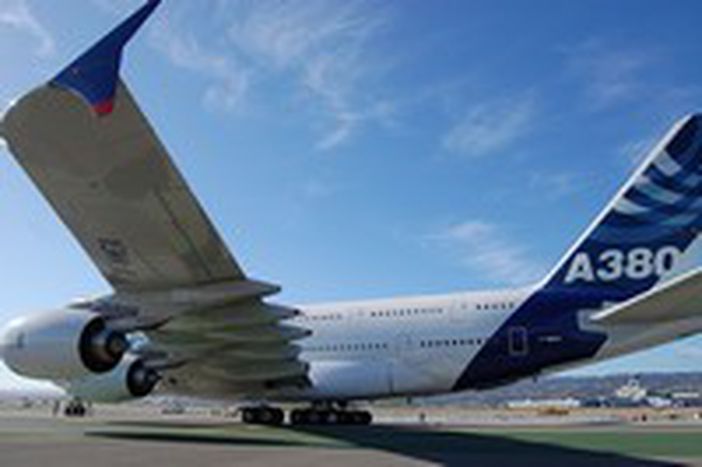
EADS: European dream or nationalist nightmare?
Published on
Translation by:
 rosanna o'sullivan
rosanna o'sullivan
Airbus A380 problems, an inside-trading scandal, delays in the delivery of the new A400M military carrier: it seems Franco-German industrial cooperation is having trouble taking off. However…
Everyone remembers the powerful images from Strasbourg in 1999. French and German political leaders had just created EADS, the first aerospace corporation that gave Airbus a unique legal framework and enabled the integration of all of the important aviation projects, in space and the military domain. It was a reaction to the merger of Boeing and McDonnell Douglas in 1996, introduced to try and re-establish a dominant position in the face of Airbus’s growing success.
The general public still has the beautiful images of summer 2005 in mind, the day of the first Airbus A380 flight, the biggest aeroplane in history, in the presence of numerous political personalities and thousands of anonymous admirers who came from all over Europe to Toulouse in southern France for the occasion.
The developer of the biggest plane (the A380) and of the biggest rocket (Ariane 5), EADS also makes the world’s best-selling helicopters (Eurocopter) and, with its commercial carrier A320, created the conditions for the development of low-cost airline companies.
Obsession with national interest
However, personal ambition and national oversensitivity threaten this great success. Personal rivalries within the upper echelons of the business have always existed. Alas, Noël Forgeard, the previous head of EADS, is not the only boss in history who has tried to abuse his position to make himself richer, ensuring he receives a 'Golden Parachute' –a rather juicy leaving bonus- of over eight million euros. But at EADS, everything becomes state business. The dismissal of Noël Forgead is complicated, because he was close to the last French prime minister, Jacques Chirac.
The implementation of the 'power 8' restructuring plan (that predicts the dismissal of 10, 000 workers at Airbus) is a consequence of the A380 production delays, but is also preparation for the new generation of aircraft based on composite materials, starting with the A350. Immediately, politicians from both sides of the Rhine are worrying about the future of their respective sites. Fortunately, the unions have a culture of enterprise, not only national, and avoid the rat race.
Everything changes and everything stays the same
With the 'power 8' storm barely calmed, the issue of Franco-German governance resurfaces. The 16 July Franco-German meeting in Toulouse settles things: the two-headed leadership is erased and the most eligible man to lead the EADS business, Louis Gallois, previous director general of SNCF (French national rail), has been confirmed as executive president.
Articles in the French and German press are similar: we read in Germany that the new structure benefits the French; it gives an advantage to the Germans say the French (though three of the six subsidiaries are led by the Germans, and the president of the board of directors is German). It’s a sign of a well-balanced compromise.
But there is still a lot to do; adjustments to temporary posts require still more tact and team spirit, beyond the opinions of nationalist apothecaries which often satisfy personal ambitions. Joint consideration of a new shareholders’ pact and the need to protect this strategic enterprise from eventual hostile takeover bids from Asian states has barely just begun.
The source of the problems at EADS is the same as in the secret negotiations in Brussels: the lack of European culture and common experience amongst the majority of the economic and political leaders, important officials and journalists. The visionaries of the early days are taking retirement and the 'Erasmus' generation is not yet in command.
Translated from EADS : rêve européen contre cauchemar nationaliste ?


